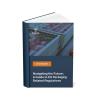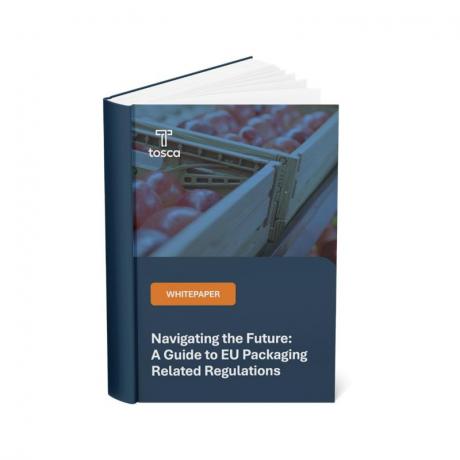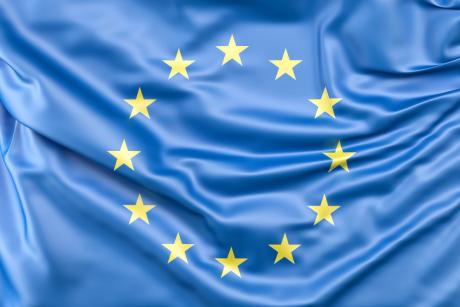For the world of food, and fruit and vegetables in particular, the implications of the vote on the Packaging Regulation are considerable, especially when it comes to exports and food waste, two aspects that have been little considered in the green-inspired institutional debate that has been animating the packaging sector for months. M. Costanza Candi
To understand the nuances of a "radical environmentalism" that does not take into account all the complexities of the sector, ItaliaImballaggio met Simona Caselli, who has two institutional roles in strategic sectors such as fruit and vegetables and dairy. In her dual role as President of Granlatte (the agricultural cooperative part of the holding company Granarolo S.p.A) and Areflh (the association that brings together European regions and stakeholders in the fruit and vegetable sector), she offers us an international - and internal to European institutions - point of view on two strategic market sectors for F&B.

AREFLH is an association that includes agricultural producers and regions, i.e. the bodies that govern waste management," Caselli begins. "Ours is therefore a mediated position, where the need for a regulation shared at European level prevails, albeit with fundamental distinctions. For example, we pointed out that some aspects of the new regulation were to all intents and purposes unmanageable for the fruit and vegetable sector. I am thinking of peaches, which cannot be transported with adequate preservation guarantees without the current packaging, or pears, which are a very delicate fruit that require special precautions for transport to preserve their quality. To overcome the constraints related to the product's characteristics, the sector is working hard on innovation in packaging materials - including plastic, paper, cardboard and bio-compostable plastics - a subject on which there is disagreement due to the different notion that each country has of the same concept. But if I think about the study of materials, I cannot but note an extraordinary dynamism, as in the case of the Italian patent by SSICA, which has developed a 'bio-can' for peeled tomatoes coated internally with a waterproofing agent derived precisely from the outer film of the tomato itself. This is an example of circularity, innovation and ingenuity made in Italy, an expression of the need to transform waste into a resource: a central theme for the fruit and vegetable industry, which is always looking for solutions to make containers efficient for export but also sustainable'.
Sustainability in spite of conservation, health and food waste
The concept of compostability, in this sense, is an emblematic case because it has revealed significant differences in the approach of Member States, where it takes on different meanings depending on applications. In northern Europe, in fact, home composting bins are widespread, while in the south, compostability is mainly understood as an industrial process ready to accept materials and objects that are impossible to process at home. This issue, apparently not central, has risked strongly conditioning even productive sectors such as floriculture, where pots, indispensable for both irrigation and transport, have been treated as disposable plastic packaging.
"The risk," Caselli continues, "was therefore to see flowers without a vase or in bio-compostable containers that decompose, making both transport and storage impossible.
These two examples, as well as offering a glimpse of the variety of sectors affected and the complexity of PPWR, explain what Caselli is talking about when he mentions fundamental distinctions. On this, especially because of his European role in Areflh, he has tried to steer the debate in the right direction, meeting DG ENVI a few weeks after the presentation of the measure, to highlight the specific technical issues of the fruit and vegetable sector and the agri-food industry in general, actively engaging during the course of the measure's passage through Parliament and the EU Council.
Even on the monoportions of butter and honey we have seen improbable positions; in fact, these are two products that, for hygienic and conservation reasons, in the case of hospitality facilities and restaurants can only be served in monoportions," says Caselli. "This is in spite of Conapi's strong commitment to the production of wax packaging, which was readmitted by the EU Parliament after having been erroneously included among traditional packaging. Another paradox of the so called green approach of the Regulation is the assimilation of oil to beverages, with all the packaging limitations of the case, to which Areflh has raised due objections, bringing the situation back into perspective'.
Simona Caselli's account, which sees the situation from the inside of a specific sector that is very closely linked to the most important properties of packaging - protection of shelf life, reduction of waste, consumer safety - makes it clear how alleged environmentalism does not take into account the overall sustainability of a measure that, as the United Nations reminds us, requires attention to the environment, the economy and society, considered in equal measure.
The risks, between parliamentary orientation and national drives
Looking at the next steps,' Caselli continues, 'we must avoid the risk of distorting the orientations of the European Parliament, which, with its vote, corrected the strong unbalance on re-use of some countries, including Germany, and the setting of pre-existing regulations of France and Spain, which had already introduced packaging bans for fruit and vegetables under 1.5 kg. Although characterised by very high export volumes, Spanish fruit and vegetables are suffering from the dichotomy between the world of production and the government's positions. With the Royal Decree of 2021, in fact, the executive has legislated with accelerated procedure, promulgating a law that has created heavy consequences on one of its most productive and dynamic sectors, with serious repercussions on performance, employment and export capacity, which the European Union would like to see. The effects of the Spanish regulation were then suspended at the request of the EU Commission, pending the outcome of the process of the new European PPWR regulation.
He continues:
The case of France, which legislated in 2020, is different, so the French have reorganised themselves in the meantime, although they remain quite distant from the discussion on this dossier. France, moreover, is a country that exports less than Spain and Italy because it produces mainly for the domestic market.
A glance at current events is inevitable, given that on 18 December there was a session that revised what had been defined in parliament (for more on this we refer to 'PPWR: the states' vote thwarts parliament's efforts').
On this point, Simona Caselli points out:
After the Environment Ministers' vote in the EU Council on 18 December, which turned the discussion back towards the text proposed by the Commission and ignored the improvements made by the European Parliament, we are back to great uncertainty about the final text of the legislation, since the trilogues will go to two very different texts and it will not be easy to find a mediation. Personally, I am quite pessimistic, because I was very impressed by the unwillingness of the Council of Member States to listen to the polite and concrete comments of the fruit and vegetable sector, which is especially worried about seeing a conspicuous increase in food waste. An inevitable outcome given the impossibility of using appropriate packaging, having to cope with an unmanageable fragmentation of the internal market due to the 'flexibility' left to member states. This aspect, referred to several times in the EU Council text, means that each State could define different lists of products exempted from the bans of the new legislation. A dynamic that is irreconcilable with the basic principles of the EU internal market legislative process, all of which aim to avoid fragmentation and instead ensure homogeneous regulations for EU economic operators. I hope that in the run-up to the Trialogues, very careful thought will be given to a scenario that, on the basis of the national derogations granted by the Council text, would make life effectively impossible for exporters".
Yoghurt like soft drinks?
Last but not least, a specific note on the dairy world, which is certainly not excluded from the complexity of the packaging theme given the strategic dimension that product preservation, shelf life, health and consumer safety represent for the sector.
If we look at the dairy sector," Caselli concludes, "the Packaging Regulation impacts above all on single-portion products, as in the case of butter for the Horeca or drinkable yoghurts, assimilated de facto to soft drinks and therefore subject to restrictions and rules that are truly incomprehensible for the type of product. Here, too, Parliament had made important corrections and we risk going back to the drawing board after the Council vote.









